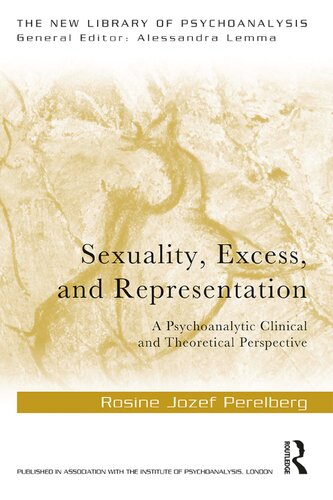

Most ebook files are in PDF format, so you can easily read them using various software such as Foxit Reader or directly on the Google Chrome browser.
Some ebook files are released by publishers in other formats such as .awz, .mobi, .epub, .fb2, etc. You may need to install specific software to read these formats on mobile/PC, such as Calibre.
Please read the tutorial at this link: https://ebookbell.com/faq
We offer FREE conversion to the popular formats you request; however, this may take some time. Therefore, right after payment, please email us, and we will try to provide the service as quickly as possible.
For some exceptional file formats or broken links (if any), please refrain from opening any disputes. Instead, email us first, and we will try to assist within a maximum of 6 hours.
EbookBell Team

4.8
64 reviewsSexuality, Excess, and Representation develops a psychoanalytic understanding of psychic bisexuality and how it can be understood theoretically and in clinical practice.
Rosine Jozef Perelberg articulates a Freudian metapsychology with modern preoccupations with questions of sexual difference and differences. She expands on the ideas presented in her previous book edited work, Psychic Bisexuality: a British-French Dialogue. The author’s approach brings back into focus Freud‘s idea that "one is not born already made as a man or woman, but one is constituted as such in the process of development". Freud’s theoretical writing on bisexuality is examined, returning us firmly to infantile sexuality and the Oedipus complex and the "repudiation of femininity".
Perelberg draws on her past training as a social anthropologist to propose and explore the differentiation between sex, gender, and sexuality. She considers post-war academic work in gender and women’s studies and queer theory, arguing that the object of psychoanalysis is not gender but sexuality, which establishes a link between the sexual and the unconscious. She suggests that the unconscious permanently challenges our apparent unity as subjects.
Sexuality, Excess and Representation will be of great interest to all practicing psychoanalysts and psychoanalytic psychotherapists.